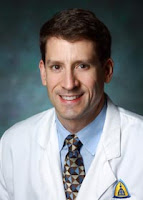Executive Director - Euthanasia Prevention Coalition
T
 |
| Dr Joseph Marine |
An excellent article by Dr Joseph Marine was published by USA Today titled: Physician-assisted suicide isn't right for doctors. Don't change the AMA position.
Last month the AMA ethics committee (CEJA) published their review of the AMA position on assisted suicide by recommending that the AMA say NO to Assisted Suicide.
In his article Dr Marine explains the background to the assisted suicide position review:
In his article Dr Marine explains the background to the assisted suicide position review:
In 2016, the AMA charged the CEJA with reevaluating the AMA’s ethical position, issued in 1994, in opposition to the legalization and practice of assisted suicide. The current AMA position states that assisted suicide “is fundamentally incompatible with the physician’s role as healer, would be difficult or impossible to control, and would pose serious societal risks.”
In its May report, after two years of exhaustive study, having considered published literature and written and oral testimony from many participants on all sides of the debate, CEJA concluded that no change in the AMA’s ethical code or language used to describe assisted suicide is warranted.
Marine, who supports the report of the AMA ethics council explains why assisted suicide is contrary to the role of a physician:
Marine concludes the article by explaining how assisted suicide will negatively effect people:The CEJA should be applauded for the thoroughness and sensitivity with which it has approached its difficult task. The report maintains alignment of the AMA’s position against assisted suicide with that of the American College of Physicians, the American Nurses Association and a medical-ethical tradition that extends back more than 2,000 years. The CEJA report recognizes the simple fact that assisted suicide is not medical care. It has no basis in medical science, medical tradition or evidence-based medicine.
The incompatibility of physician-assisted suicide with ethical medical practice is illustrated by the stunning news published in April that in Washington, D.C., nearly a year after enactment of assisted-suicide law, only two out of 11,000 licensed physicians (0.02%) had registered to participate. The indisputable facts emerging from Washington show physicians still recognize that assisted suicide is gravely problematic, and that physicians who practice physician-assisted suicide may not be trusted by patients with their lives and their health.
Assisted suicide will affect everyone. Proponents of assisted suicide assert that it is a matter of personal choice, and that participation will be required of no one. This is a naive viewpoint.
Assisted suicide will inevitably color doctors’ view of care toward patients with advanced illness, advanced age and disabilities. With time, the “choice” may become a societal expectation, especially under the economic pressure of rising health care costs.
As Derek Humphry, the founder of the modern euthanasia movement, wrote in "Freedom to Die": “In the final analysis, economics, not the quest for broadened individual liberties or increased autonomy, will drive assisted suicide to the plateau of acceptable practice.”
Assisted suicide is dangerous, is unnecessary and will permanently damage the integrity of and public trust in the health professions and the health care system. The AMA House of Delegates should strongly support adoption of the CEJA report and maintain its ethical position against physician-assisted suicide.
Let's hope that the AMA upholds the position that assisted suicide is unethical.



1 comment:
It is incompatible with the gift of life, incompatible with Health Care, incompatible with Biblical guidelines and the dire fallout to Physician and family has not been researched or qualified.
Post a Comment